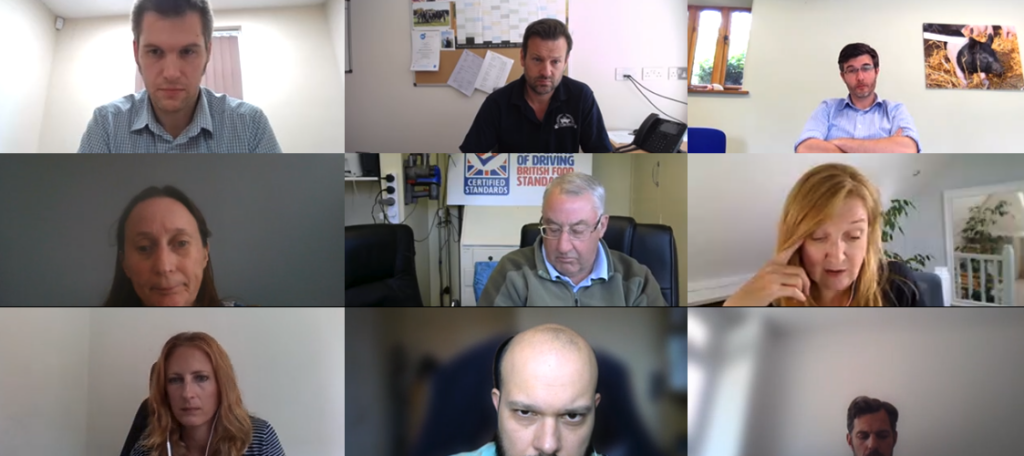High feed prices and a shortage of straw continue to be major concerns across the country, while labour availability is becoming an increasingly problematic issue, according to members of the NPA’s Pig Industry Group (PIG).
Producer margins remain under pressure, reportedly prompting some producers to quit the industry. While the steady rise in pig prices over the past three months has been welcome, input costs remain at record levels, averaging 174p/kg in the first quarter of this year, according to AHDB figures.
With wheat and soya prices remaining high, that is unlikely to have changed significantly during the current quarter and the situation is taking a heavy toll on producers, producer members said.
Meanwhile, a lack of available labour due to Brexit-related issues, including new conditions for EU migrant workers imposed by the Home Office, and COVID-19 restrictions ease, is having an impact across the sector.
Starting the regional round-up at the recent PIG meeting, Midlands producer Sam Godfrey said producers were continuing to exit the industry as feed price ‘continues to apply significant pressure’.
Northern producer Phil Stephenson said there were concerns over margins going forward, with producers also quitting production as a result. He pointed out, however, that harvest looks promising for yields grain and straw.
A lack of staff was identified as a big issue in the South West, with lots of producers ‘feeling pretty despondent’.
From the South Central region, Sally Stockings also highlighted the positive harvest prospects, although she said there was no sign yet of the future feed price reacting fast enough to the prospect of more ample supplies of key ingredients. “There is lots of talk that getting staff is a nightmare,” she added.
There were also reports from the region that some producers were talking about exit strategies if margins stay negative for another 12 months.
“Rising pig prices still have a long way to go to break even and would then need to go to unprecedented levels to turn into a positive margin. The feed price is extreme, with next to no supply of barley, and topping up straw is extortionate. This year’s crops look good, though,” was another comment from the region.
Producers, contractors, hauliers and builders in the region are all struggling to find staff.
Some producers in East Anglia are ‘really struggling’ with straw availability, which will be very tight until harvest starts, according to one of the eastern representatives.
“I am aware of another producer looking to exit the industry due to staff shortages. The general feeling is rather negative, with high feed prices and low pork prices. On the positive side, people are very happy with how crops are looking and expect good straw yields,” he said.
Allied industry round-up
From the allied industry side, Premier Nutrition’s Michelle Sprent gave a brief summary of the feed ingredient market:
- Soya is still running high at £360-370/tonne
- Barley is expensive and very hard to source
- Wheat has been over £200/t but is back to £175 post-harvest.
Oli Bown, from Thames Valley Cambac said there was no sign of feed prices coming down significantly in the near future, meaning losses are likely to continue. He said this was forcing some producers to assess their future, with farrowing legislation potentially the final straw for many.
On the brighter side demand has been good, he added, reinforcing a positive market outlook delivered by AHDB pork strategy director Angela Christison.
“Staycations should also mean demand will stay strong if the weather is kind to us,” Ollie said. “Several stores have had empty shelves of pork products over the last week. But staff is the other ongoing concern, with plants proving unreliable in the last 7-10 days.”
Amid warnings from the British Meat Processors Association that processing capacity could soon to be affected by labour shortages, Karro’s Steve Urwin, highlighted how recruitment was a ‘major challenge’ for the company.
He explained how Karro was moving away from focusing on European labour to a more global supply, which comes with a ‘massive cost’ that the company is working to overcome.
“It is all about people and maintaining our capacity. Our job is to keep the factories full – that is what we are determined to try and do.”
He said the company had tried to introduce automation and new technology in some areas, but in many cases, this could never replace people.




